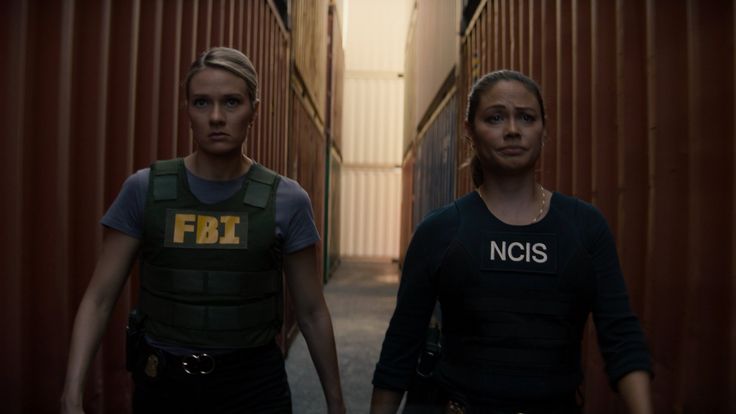
When it comes to crime dramas, fans expect thrilling investigations, high-stakes chases, and shocking twists. But NCIS: Hawai’i took things a step further — it added heart. The show didn’t just highlight the island’s beauty or showcase military precision; it put family front and center. This wasn’t your typical procedural drama — it was a love letter to ohana.
The Heart of NCIS: Hawai’i — Ohana Comes First
At its core, NCIS: Hawai’i celebrated the Hawaiian concept of ohana, which means family — not just by blood, but by bond. The show’s writers built stories that blended professional duty with personal connection, turning each episode into a balance of action and emotion.
Jane Tennant (played by Vanessa Lachey), the first female Special Agent in Charge in the NCIS universe, perfectly embodied this theme. She was fierce, capable, and driven — but also a single mother navigating parenthood alongside her demanding career. Her life reflected the reality of many women today: juggling leadership, motherhood, and personal growth.
A New Kind of Leadership in the NCIS Franchise
Breaking Barriers and Building Bonds
Unlike her predecessors, Tennant led with empathy as much as authority. She was not the distant boss archetype; instead, she built trust through compassion and respect. Her team wasn’t just a collection of agents — they were family. From Kai Holman’s local roots to Lucy Tara’s sharp intellect and Jesse Boone’s veteran wisdom, the team dynamic mirrored a real family’s ups and downs.
Representation with Meaning
Vanessa Lachey made history as the first woman to lead an NCIS show — a significant step in television’s ongoing evolution toward inclusivity. But more than that, Tennant’s storyline resonated deeply because it didn’t rely on stereotypes. She wasn’t portrayed as a flawless hero — she was human. She struggled, adapted, and triumphed, often with her children by her side.
Blending Family Drama with Military Precision
NCIS: Hawai’i found its unique rhythm by merging personal storytelling with procedural structure. While many episodes revolved around solving crimes tied to the Navy or Marines, the family subplots gave each case emotional depth.
The Dual Worlds of Jane Tennant
Every episode felt like a balancing act between the intensity of investigations and the tenderness of home life. One moment, Tennant was dismantling an international threat; the next, she was helping her daughter navigate teenage challenges. These transitions felt authentic — reminding viewers that heroes aren’t just in the field, but also at the dinner table.
The Power of Found Family
The Team That Became a Tribe
From the beginning, Tennant’s team operated less like co-workers and more like siblings. Lucy and Kate’s budding romance added emotional warmth, while Jesse’s fatherly instincts grounded the group. Kai, the native Hawaiian agent, brought cultural insight that connected the team to the local community — reminding viewers that family also means respecting where you come from.
Ohana Beyond the Workplace
The team’s dynamic extended beyond office walls. They celebrated milestones together, supported one another through personal loss, and navigated the gray areas of morality that come with the job. This sense of belonging wasn’t just written — it was felt.
A Different Kind of Crime Show
Emotion Over Explosion
While other NCIS shows often focused heavily on adrenaline-fueled chases or military conspiracies, NCIS: Hawai’i prioritized heart. The show asked viewers to care about the people behind the cases. When the characters hurt, we hurt with them. When they triumphed, it felt personal.
Hawaiian Culture at the Core
The series didn’t use Hawai’i as a backdrop — it honored it as a character in itself. The inclusion of local customs, community values, and environmental respect created authenticity rarely seen in mainstream TV. This deep integration made every episode feel alive and grounded in real Hawaiian spirit.
Motherhood and Leadership: A Balancing Act
Jane Tennant’s dual role as mother and leader gave NCIS: Hawai’i its emotional gravity. Her interactions with her kids weren’t side plots; they were central to her identity. Her leadership style often reflected her parenting — firm yet compassionate, protective yet empowering.
A Role Model On and Off Screen
For viewers, Tennant became a symbol of modern strength. She showed that success doesn’t mean sacrificing personal life. Instead, it’s about finding balance — a message that resonated with audiences across generations.
Relationships That Defined the Series
Lucy Tara and Kate Whistler’s Groundbreaking Storyline
One of the show’s most celebrated relationships was between Lucy and Kate. Their romance broke barriers within the NCIS franchise by representing LGBTQ+ love authentically and tenderly. It wasn’t treated as a subplot but as an integral part of the show’s heart.
Jesse Boone’s Family Anchor
Jesse, the team’s steady presence, was more than a field agent — he was the group’s moral compass. His bond with his wife and children offered a mirror to Tennant’s challenges, reinforcing that family — in all its forms — drives us to be better.
Why Family Stories Matter in Crime Drama
The success of NCIS: Hawai’i proved that even in a genre known for tension and mystery, emotional storytelling matters. By blending family values with investigative thrills, the show reminded audiences that humanity is the ultimate crime-solving tool.
Legacy of NCIS: Hawai’i
Though the series ended sooner than fans hoped, its impact remains undeniable. It expanded what a procedural could be — less about bullets and bureaucracy, more about belonging and balance.
Setting a New Standard
Future shows will look back at NCIS: Hawai’i as a blueprint for integrating emotion without sacrificing intensity. It paved the way for a new era of storytelling — one where empathy and justice coexist.

Behind the Scenes: A Cast That Felt Like Family
The chemistry among the cast wasn’t just acting — it was genuine. Vanessa Lachey, Noah Mills, Tori Anderson, and the rest of the ensemble often referred to each other as “ohana” offscreen. That real-life bond translated beautifully on camera, enhancing the show’s authenticity.
Fans’ Emotional Connection
Social media lit up with heartfelt reactions every time the show explored family-centered storylines. Fans praised how NCIS: Hawai’i portrayed love, loyalty, and sacrifice without losing its edge. The hashtag #OhanaForever became a digital rallying cry for viewers who saw themselves reflected in the characters’ struggles.
The Show’s Message Lives On
Even after its final episode, the spirit of NCIS: Hawai’i continues to resonate. Its message is timeless: family isn’t a distraction from duty — it’s what gives duty meaning.
Conclusion: NCIS: Hawai’i Redefined What It Means to Serve
NCIS: Hawai’i may have wrapped, but its legacy endures. It taught us that behind every badge is a heart, behind every mission is a motive, and behind every hero is a family that fuels their strength. By focusing on love and loyalty as much as justice, the show reminded viewers that ohana is more than a word — it’s a way of life.